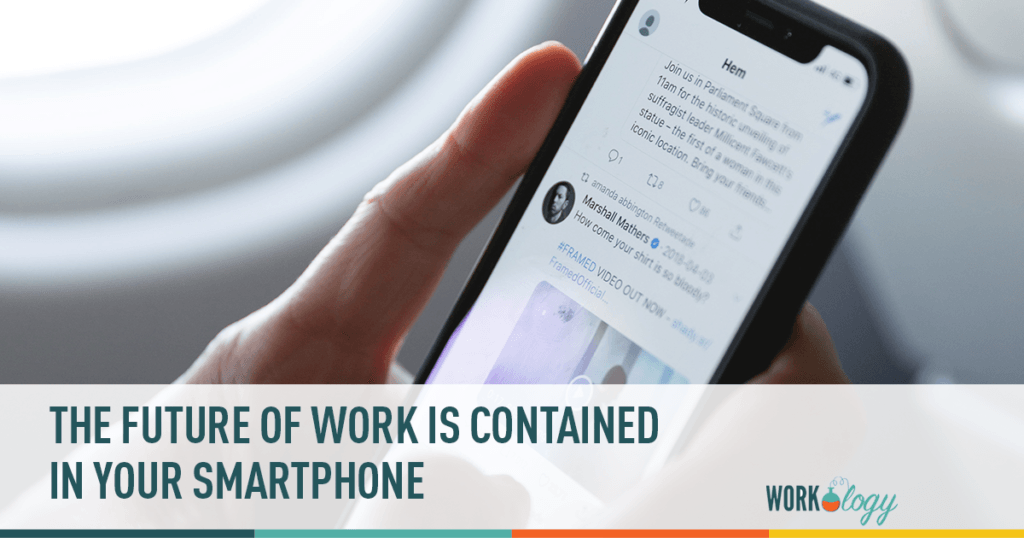How many of you have had to travel with a laptop? It is a pain in the neck to do so. You have to make sure you have all the appropriate cords and plugs. Some people will travel with a keyboard and some even travel with an additional monitor. TSA has made taking your computer through security difficult unless you have precheck. The airlines have shrunk seats to a size where it’s difficult to open up a tray table in order to use a computer to work. I find the process difficult enough that I don’t open my computer up at all on the plane. I have transitioned to an iPad but that is not the easiest to work on either. What if you had an easier way that didn’t require all that equipment? Would you be interested?
All On Your Phone
Rich Rao, who leads the global Android, Chrome, and education businesses within Google for Work, thinks your future of work will be contained in the personal assistant you carry in your pocket called your smartphone. He sees this device transforming in three ways to make this possible. Rao says “Software powered by machine learning will help our devices understand how we operate, anticipate our needs, and pave the way for a more productive (and hopefully more pleasant) workday.” Sounds pretty good doesn’t it?
Top 3 Changes
#1 Anticipation
Right now many of us use our phones for notes, schedules, email, research and maps and they do a good job. However, what our phone cannot yet really do is anticipate or predict events and then respond to them appropriately. Rao gives an example of what is coming when he says “Imagine your phone senses that you’re running late for a meeting, so it calls a ride for you and pings your colleagues with an updated ETA. Later, you’re heading into a daily meeting, and on your walk over your device puts the relevant documents at your fingertips and automatically starts taking notes when you get there.”
#2 Laptop free
Wouldn’t you love the possibility of dumping you laptop forever? Rao says that “Voice transcription, powered by deep learning on neural networks, will fix your grammatical errors more accurately than ever on the fly. In fact, they’ll soon let you do business entirely by speech—no need for a sprawling keyboard or even a screen.” I like the potential ease of use for this but I still see some problems. Working on a plane where everyone is “dictating” their documents would be pretty chaotic. I think we need to get to a neural connection where we can think our work and send it by blue tooth. That is probably not as far off as we might think.
There are already some systems from both Google and IBM that allow emails to be responded to and created by the learning that has been done by the machines. Some of this is done with Google’s Smart Reply.
# 3 Data analysis at your finger tips
Your phone tomorrow is going to be more than just a device to calculate restaurant tabs on. Rao says “Tomorrow we’ll use our mobile devices to perform much more complicated, high-value computations. Machine learning will make it easier to process and organize external information for work—whether that’s closing sales, generating reports, or changing your marketing budget in real time, from any device.” Rao continues “Machine learning will make it easier to process and organize external information for work—whether that’s closing sales, generating reports, or changing your marketing budget in real time, from any device.”
Power in Your Pocket
Rao points out that this transition to having all this power in your pocket will take some time to occur. Obviously just further development of the technology is needed. However, it will also take we humans time to adapt to working that way. We will have to do a lot of adapting for our workforce. But for me it cannot occur fast enough.








